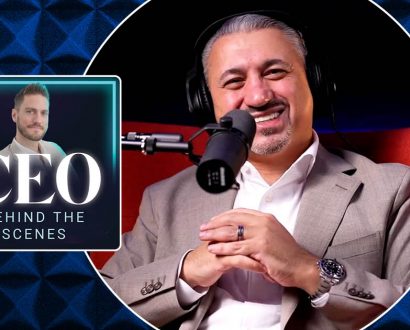When someone is consistently late or appears disorganised and overwhelmed by all they have to do, we generally assume it is a self-management issue.
We recommend they do a time management course or get some coaching around email management, or how to use the latest personal organisational system.
However, while self-management will be a factor, it is usually not the main issue or the starting point for more effective self-leadership. A time management course is not going to help you develop the courage you lack to ask your team to cover for you for an hour or two, while you shut your door and carve out uninterrupted thinking time.
The latest high-tech personal organisational tool is not going to help you stop being distracted if you check your email every 10 minutes, or take every phone call or respond to every interruption.
Some executives wear being busy like a badge. They stay back late or get to work early to make use of the quiet hours when no-one can interrupt them. Or they are always taking work home to do after their family is asleep. They may get their work done.
However, their behaviour negatively impacts their family life and, if sustained over long periods, their health. TAL Insurance reports that in 2016 the number of Income Protection claims for stress, anxiety and depression, have risen to equal claims for physical injury.
Self-respect
Have you ever wondered how some people seem to glide through their day? They usually appear to have time and rarely appear stressed. They have developed healthy self-respect.
They have not just learned the intricacies of their role; they have done some work on themselves and come to understand themselves very well. They know and work with their strengths. They know and accept their weaknesses and have learned to lean on others to assist in those areas.
They have a clear understanding of their own values – what they will and will not do to get ahead. They have become secure enough in their own skin to be their own person.
They can say ‘Yes!’ and make things happen; and they can push back and say ‘No!’ to less strategic matters and not feel obligated or fearful of the consequences. They will work back occasionally to kick some goals or to get their head around a new project, but they normally get their work done so they can leave work to pursue the other important priorities in their life.
Dermot Crowley, in Smart Work, speaks of being “outcome focused” rather than “input driven”. The outcome-focused person will know what they need to achieve each day in order to move towards their goals.
They will make sure they do not fritter away their days allowing their agenda to be set by others; for example, by responding to emails, phone calls, staff questions, and attending unnecessary meetings.
It is impossible to build a rhythm of being outcome focused without healthy self-respect. You must respect yourself enough to take some time alone, first thing in the morning (or last thing at the end of the day) to plan.
The busier your role, the more strategic you need to be about your use of time. Building a strong daily routine helps. As does learning people management and delegation skills to work effectively with and through others.
Self-care
The other aspect of self-leadership that is often neglected is self-care. When self-respect is healthy, it becomes normal to make sure you are taking care of yourself. You do not need to wait for a health scare to exercise.
You have learned to keep a scheduled appointment with a personal trainer or a massage therapist, even if it means being unavailable to clients for that time slot. When self-respect is healthy you are willing to build your work schedule around what works for you, what enables you to function best.
It is not about saying ‘no’, rather about knowing yourself well and being organised so you can make life work for you.
If life works for you, you know you will be at your best more often and more able to serve your clients and team well.







